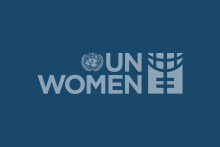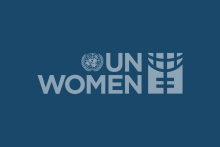The report shows the dismal state of maternity protection across the globe. Despite advancements, more than 63 per cent of women worldwide still give birth without access to maternity benefits, with the figure soaring to 94 per cent in sub-Saharan Africa. The lack of financial support during maternity leave not only places women at an economic disadvantage, it also compromises their health and well-being and that of their children, perpetuating poverty across generations.
The report paints a stark picture of the gendered nature of poverty. Women and girls are overrepresented among the poor at every stage of life, with the largest gaps during their childbearing years. Women aged 25-34 are 25 per cent more likely to live in extremely poor households than men in the same age group. Conflict and climate change exacerbate this inequality. Women in fragile contexts are 7.7 times more likely to live in extreme poverty compared to those in non-fragile environments.
Gender-specific risks and vulnerabilities are often neglected in the aftermath of shocks. For example, very high rates of inflation since 2022, which have led to spiraling food and energy prices, hit women particularly hard. Yet, out of nearly 1,000 social protection measures adopted by governments across 171 countries in the months that followed, only 18 per cent targeted women’s economic security, the report reveals.
Which government policies do the most to keep women out of poverty?
Through the right policies, governments can support women and girls to realize their rights and full potential.
“The potential of social protection for gender equality, resilience and transformation is enormous. To harness this, we need to centre the dignity, agency and empowerment of women and girls at every stage of the process – from policy and programme design to delivery and financing”, said Sarah Hendriks, Director of the Policy, Programme and Intergovernmental Division at UN Women, presenting the report at a joint event with the UN Department of Economic and Social Affairs.
With contributions from academia, civil society and the UN system, notably the International Labour Organization, the report spotlights examples of progress. Countries such as Mongolia have extended maternity leave benefits to informal workers, including herders and the self-employed, while also strengthening paternity leave to support gender equality in caregiving responsibilities. In countries like Mexico and Tunisia, steps have been taken to include domestic workers in social security systems. In Senegal, the National Health Insurance scheme has extended and adapted its services to cater to rural women, with support from UN Women.
These initiatives demonstrate the transformative potential of social protection systems, policies and programmes that are gender-responsive, i.e. that pay special attention to the unique challenges that women and girls face.
In this world of turmoil, UN Women’s report calls on governments to provide women and girls with sustainable pathways out of poverty, by prioritizing the needs of women and girls in their social protection measures and crisis responses.
For media inquiries, contact media.team@unwomen.org

